Arts
Examining the role of The Arts as a catalyst for healing, transformation and action
Introduction
The practice of Art—in its infinite forms, functions and implications—is the most accessible and universal way of constructing meaning out of the world we inhabit.
Our Philosophy: The Arts are not just for experts. They are not solely for the enjoyment of the elite. They are not a superfluous extravagance. The Arts are for us all, expert and novice alike. They are not just an end in and of themselves, but a means. They shape, and are shaped by the world we inhabit.
Students in the Arts Scholars program gain a deeper understanding of the impact of art as a means to explore society and culture against the backdrop of our individual differences and shared experiences.
What you can expect: No matter your major, area of artistic interest, or skill level, as a member of our community, you will be challenged to strengthen your personal artistic skill set, experiment with new and different art forms, and gain a deeper understanding of the value of the arts in our personal and collective lives. We will investigate the power of the arts to:
- Communicate difficult concepts
- Advocate for social change
- Investigate the human experience
- Explore our own identities
- Develop our capacities as creative problem solvers and critical thinkers
- Reinforce, but also upend, existing systems of inequality and oppression
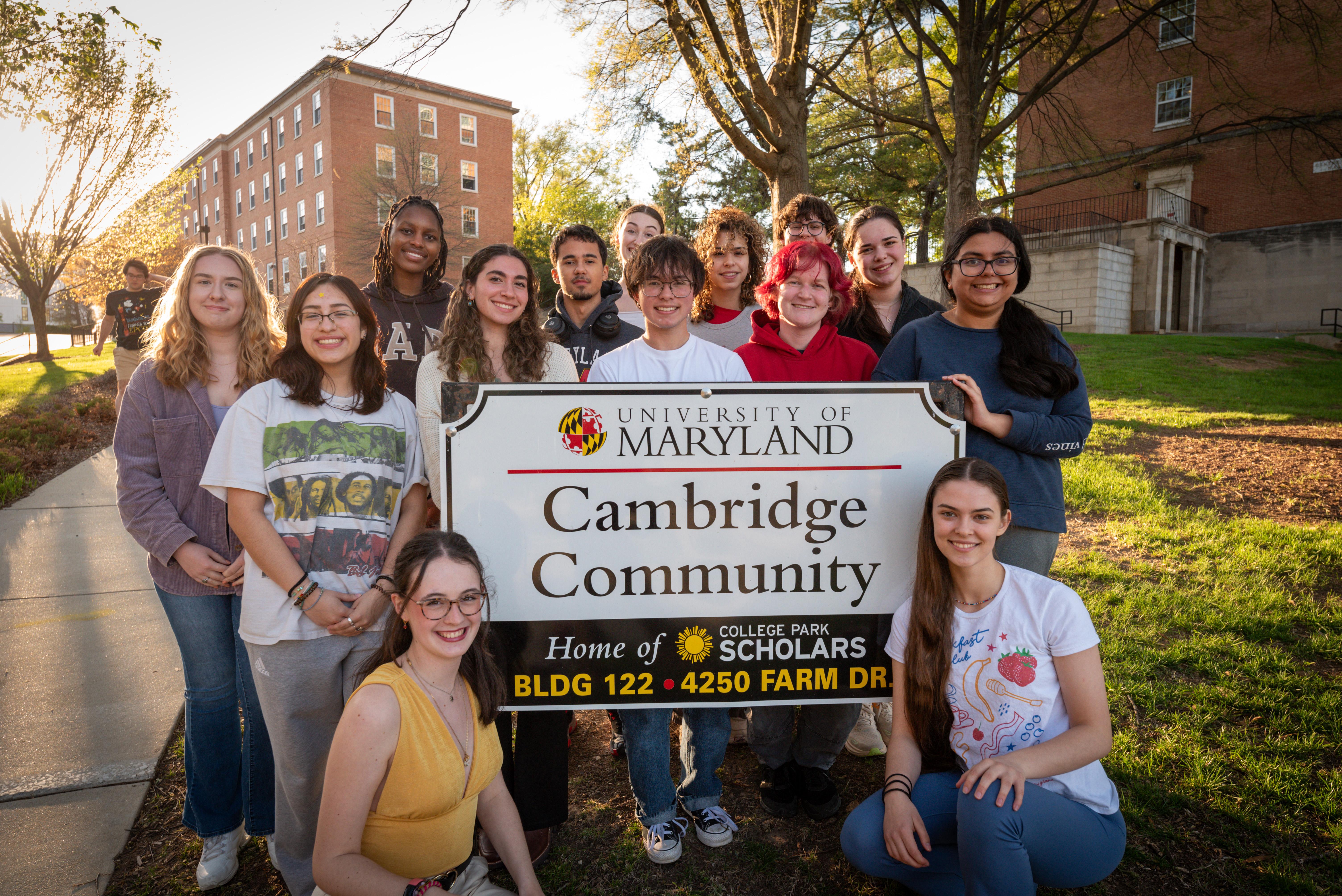
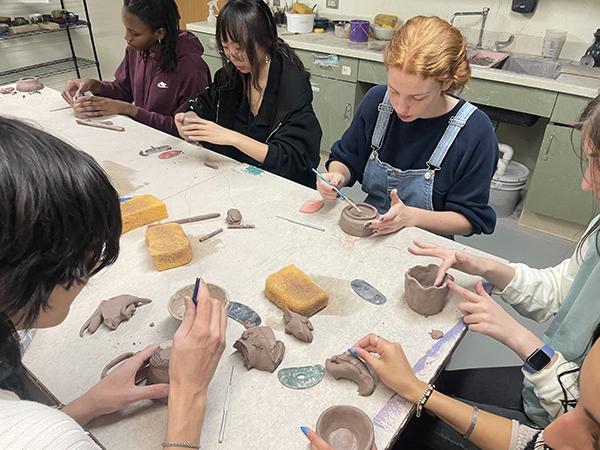
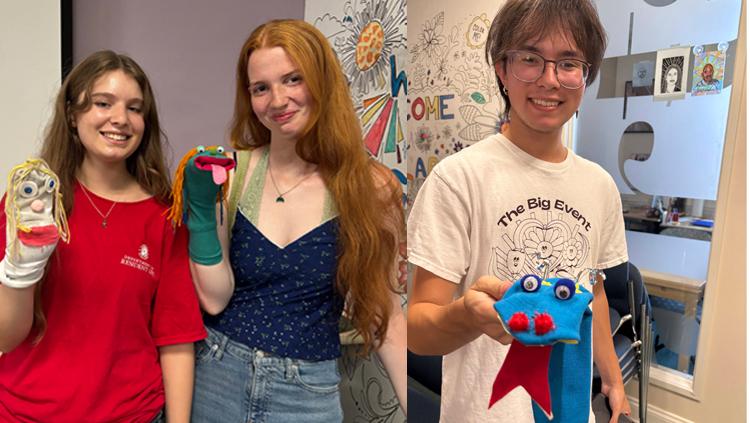
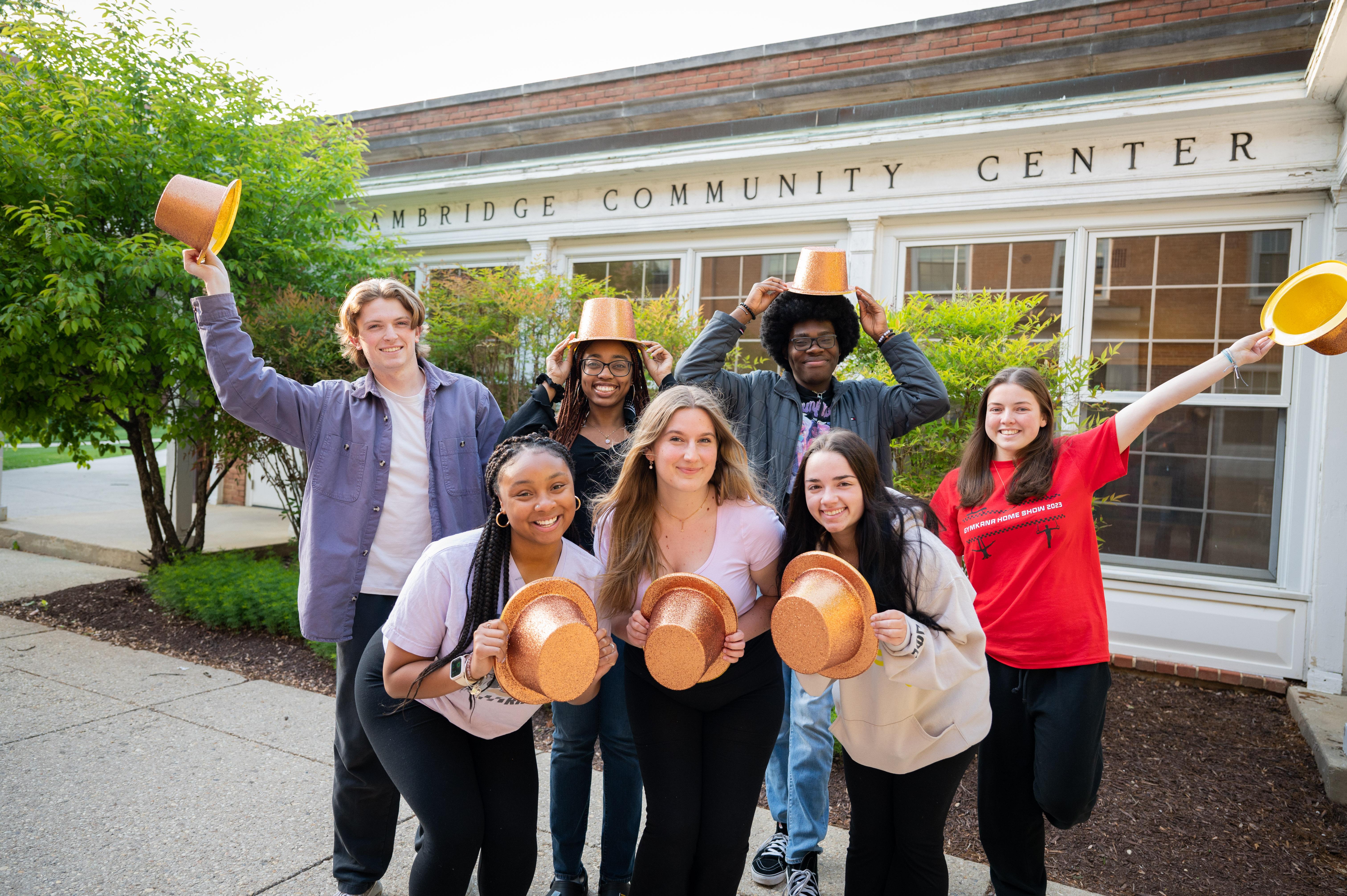
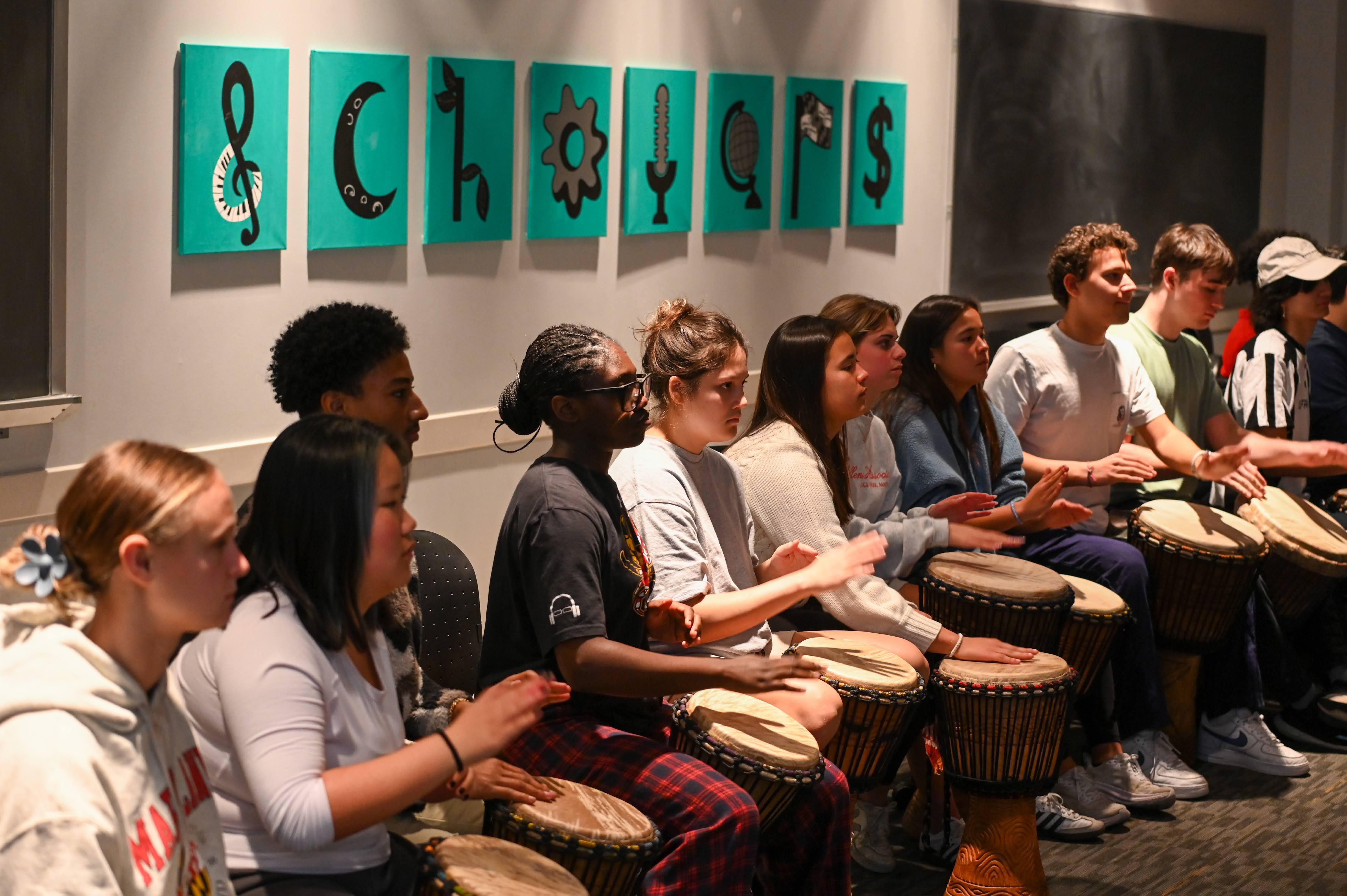
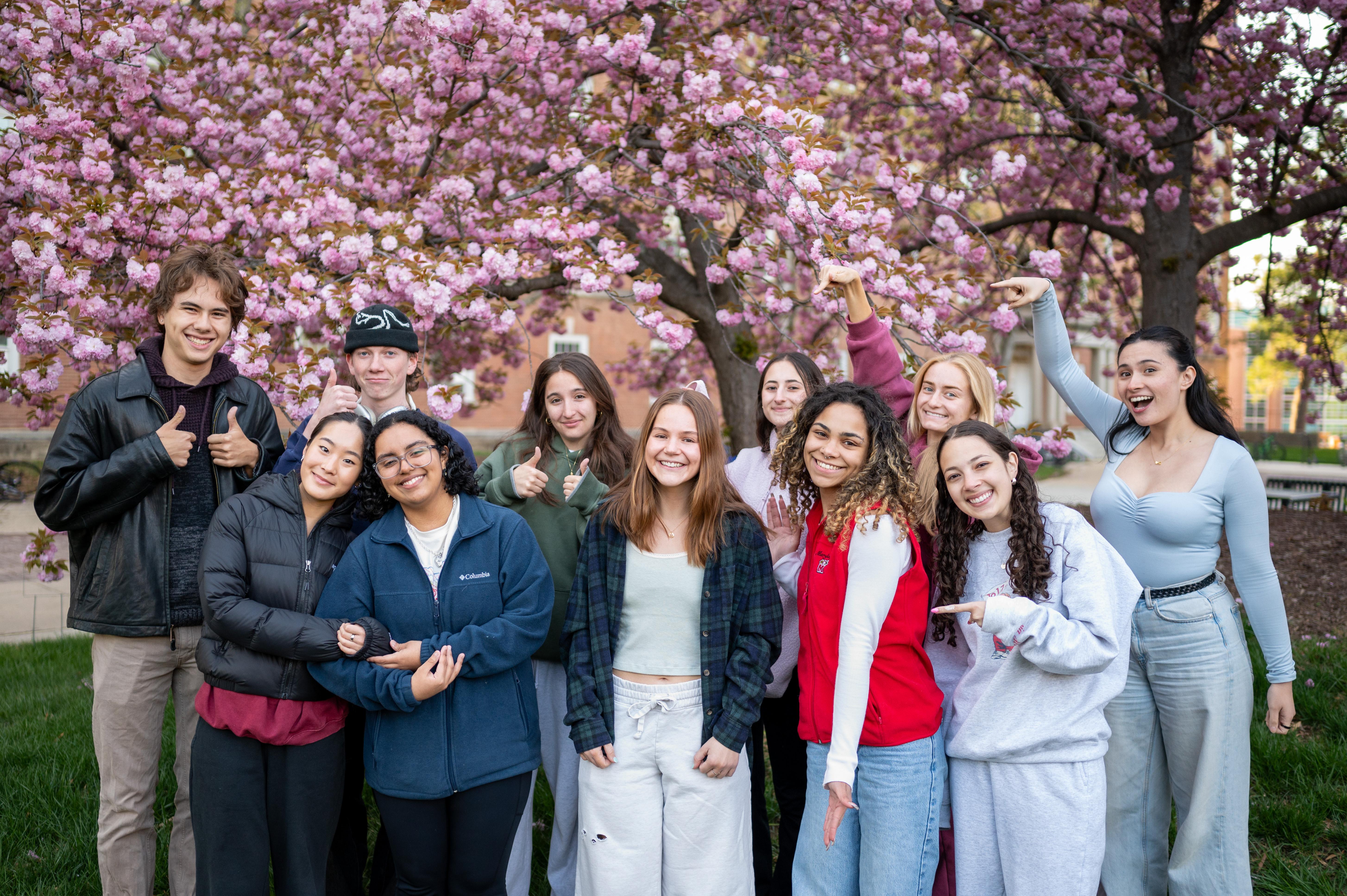
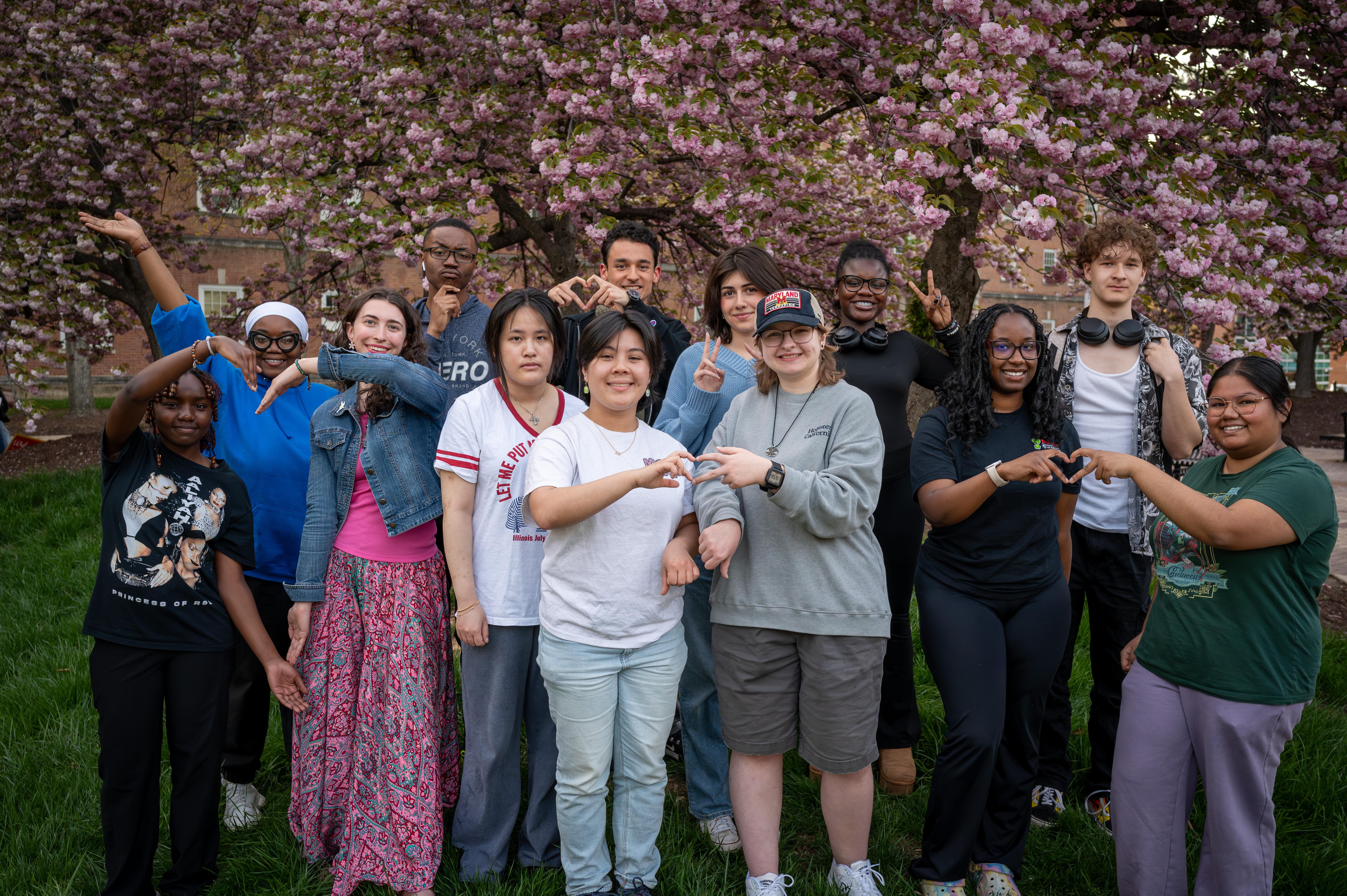
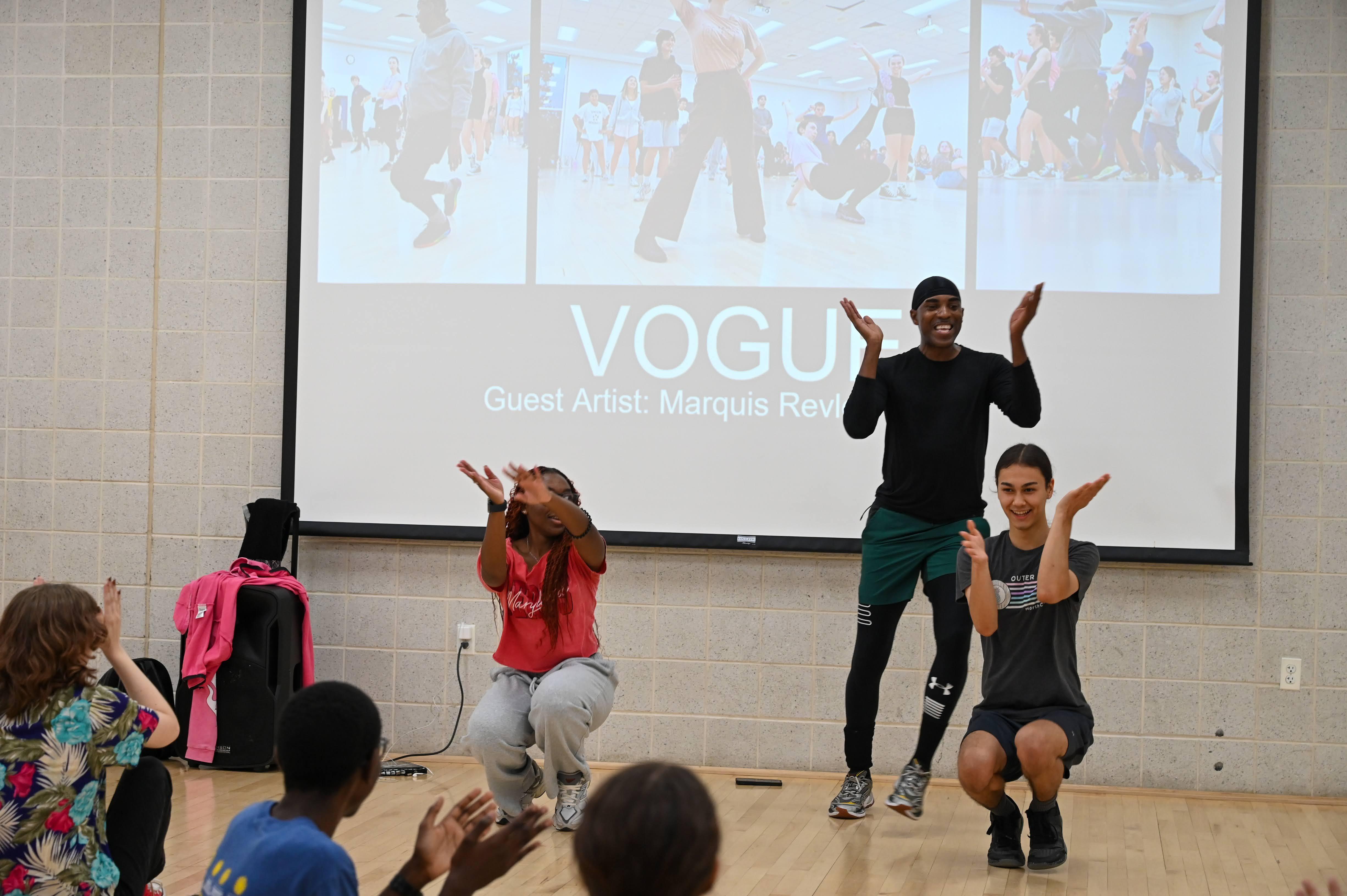
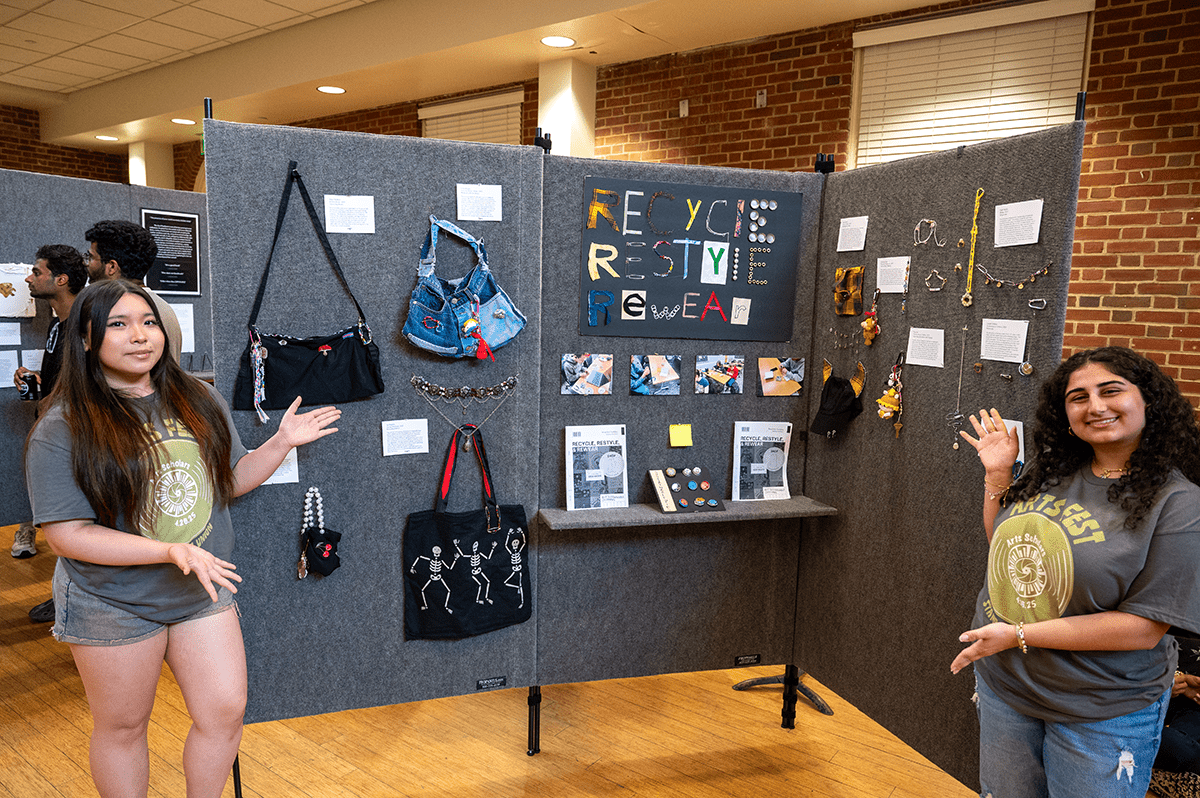
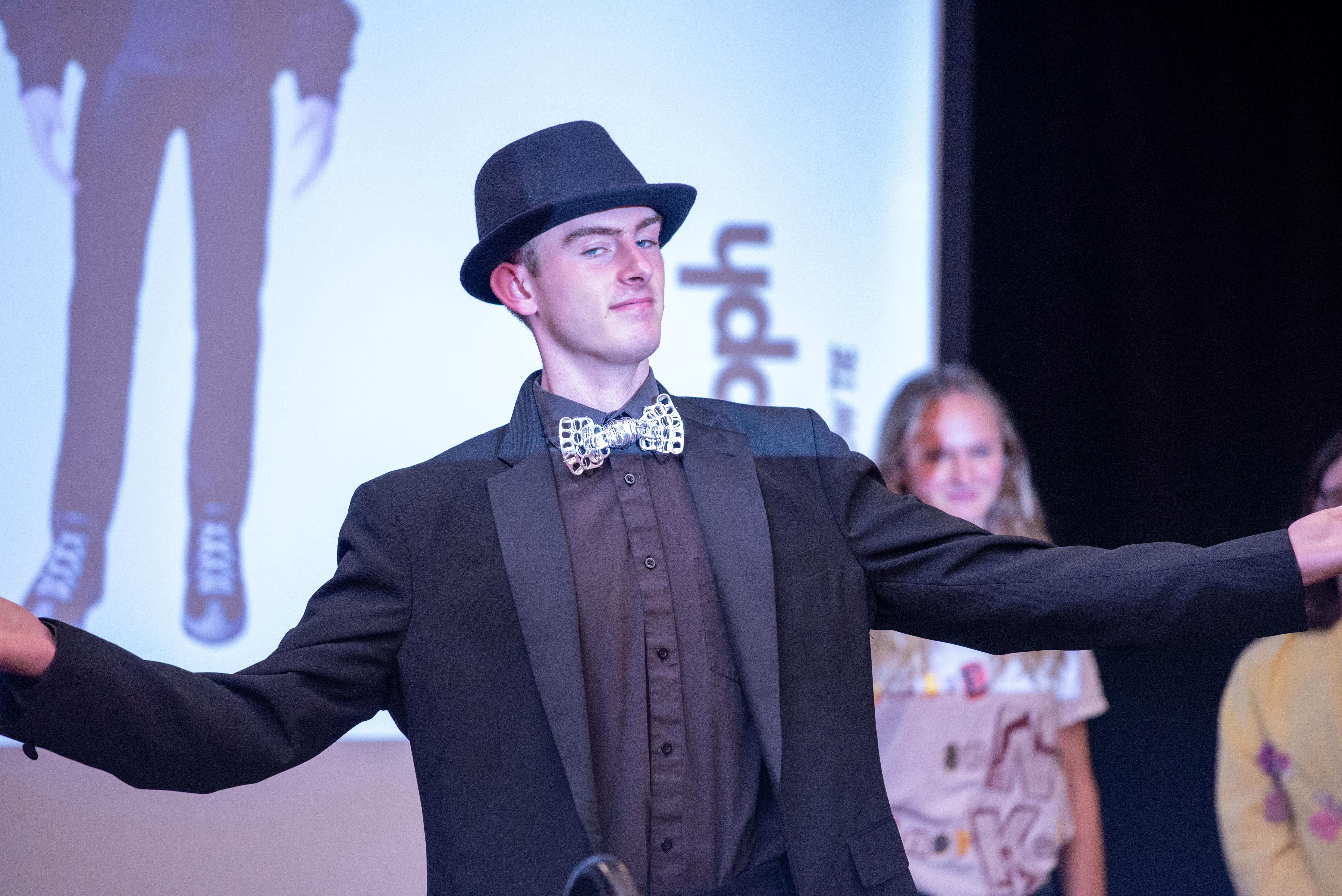
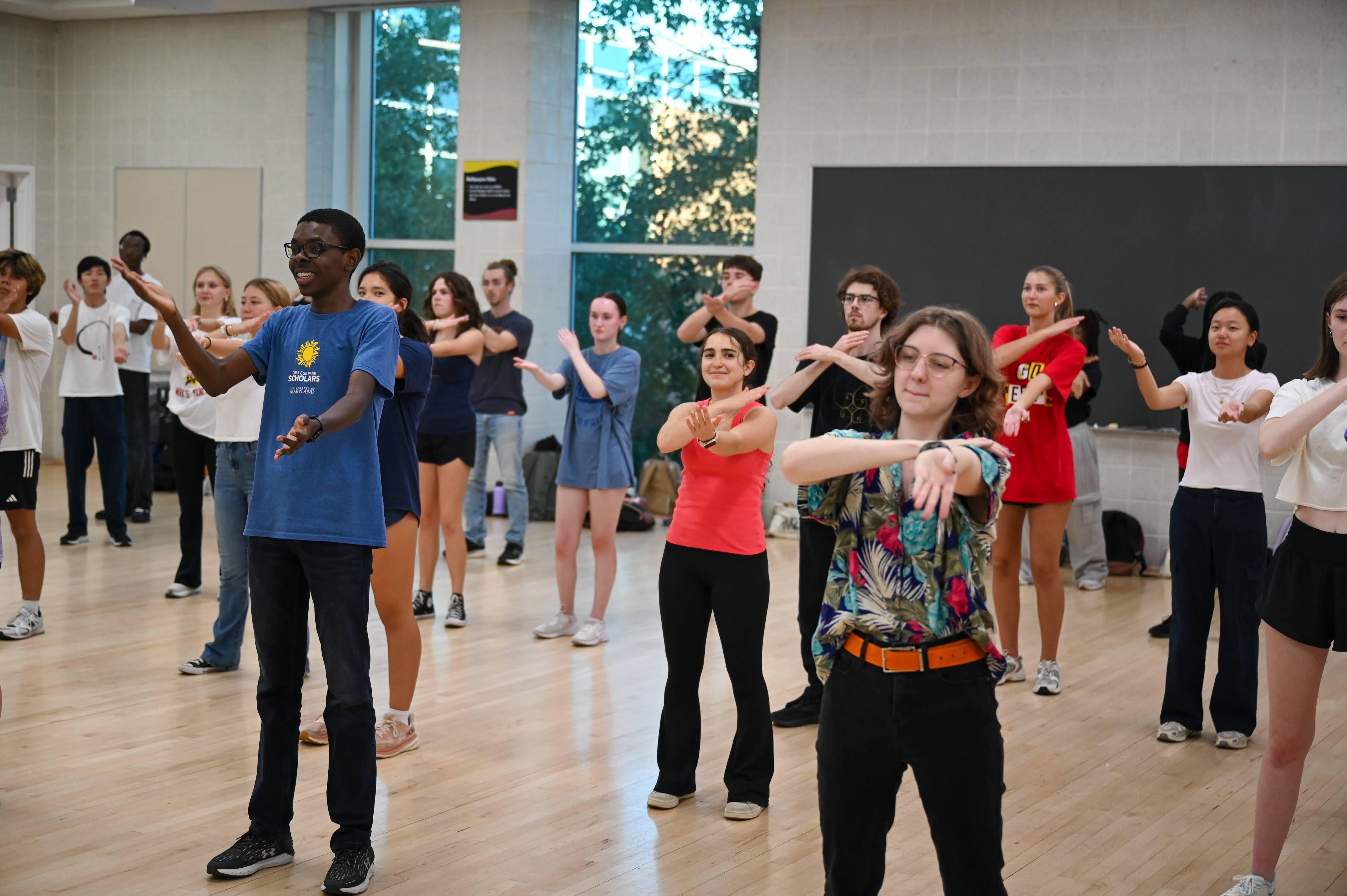
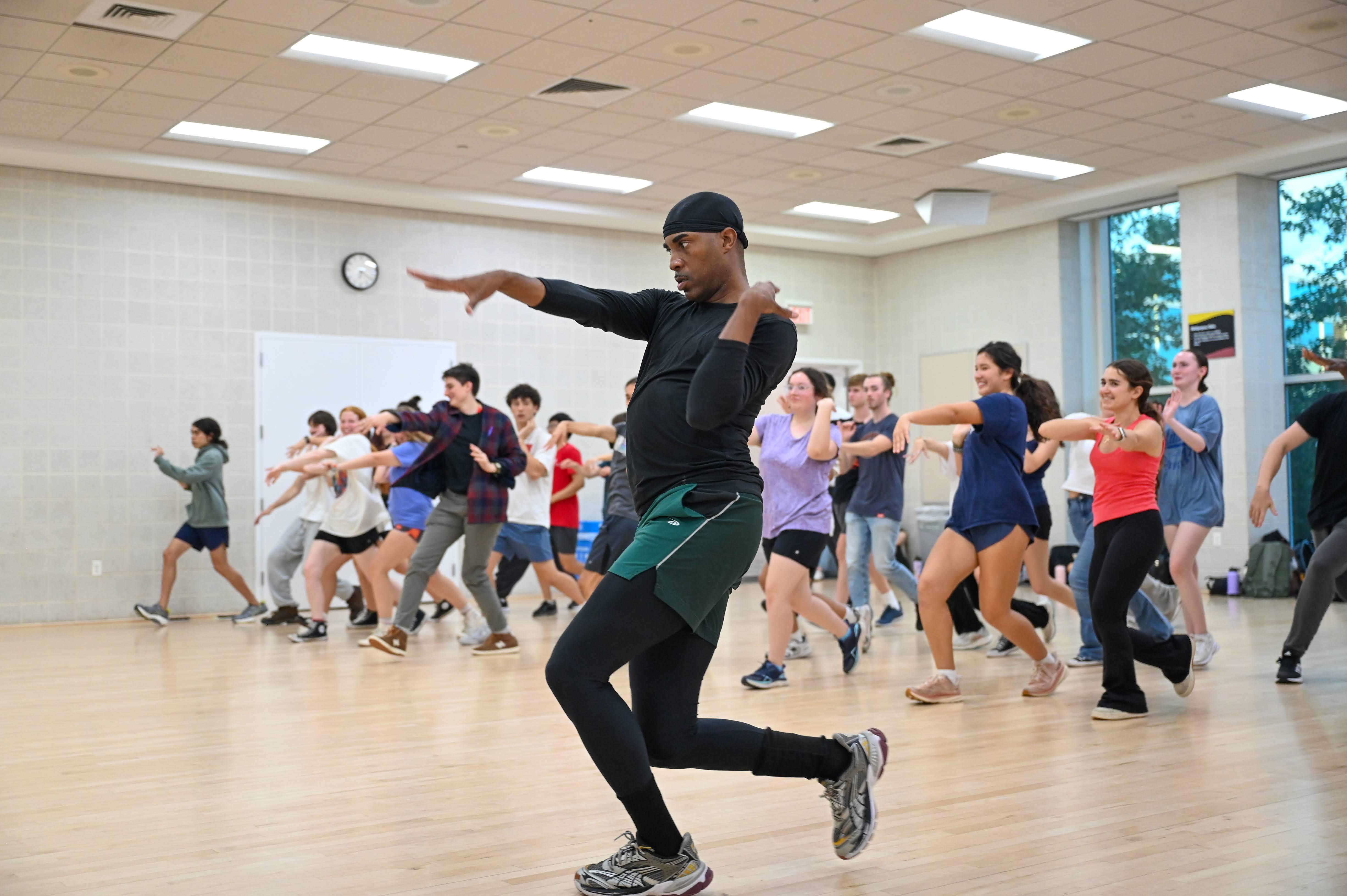
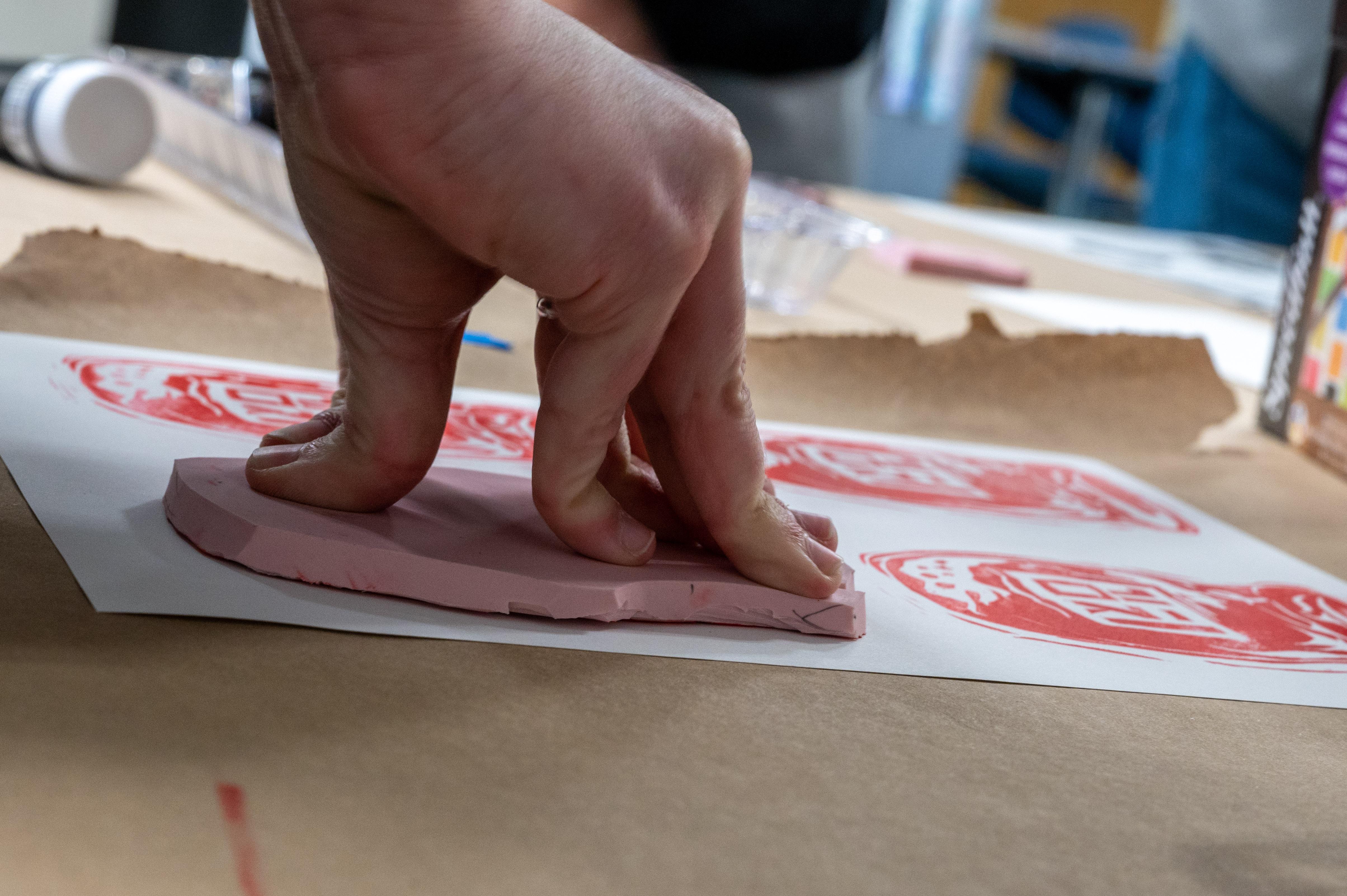

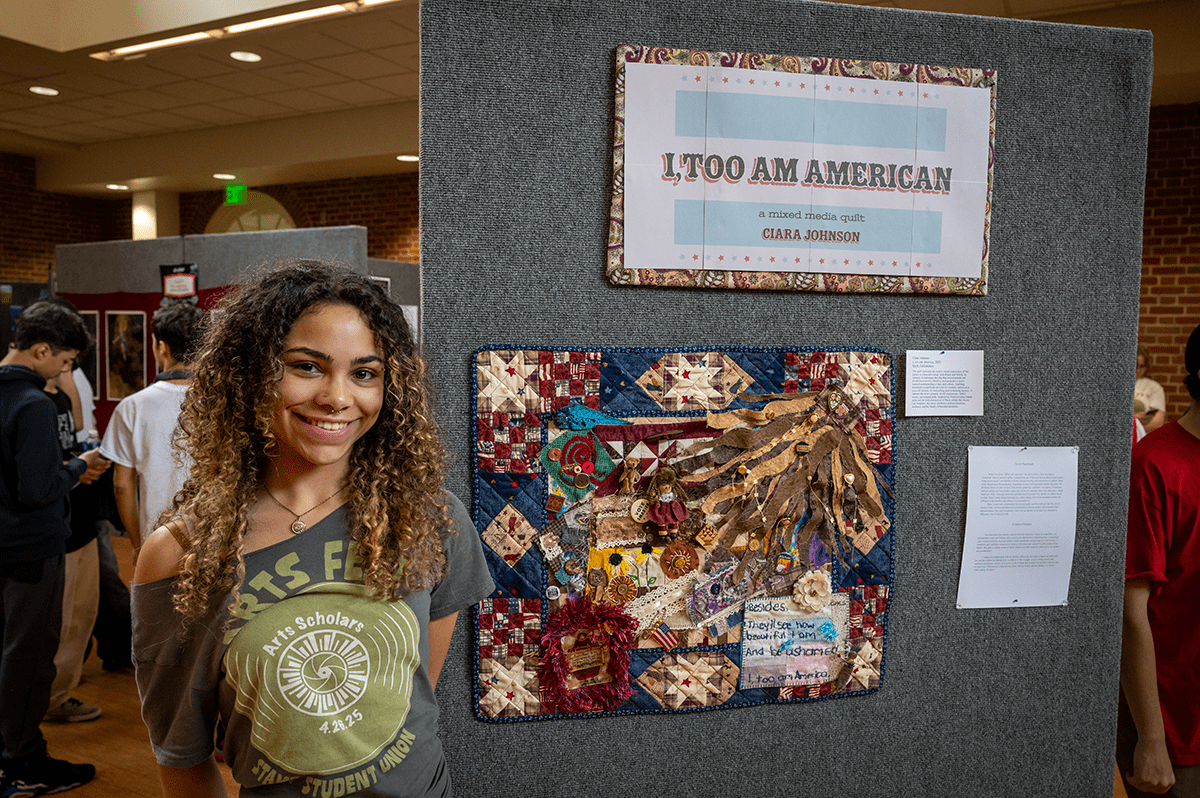
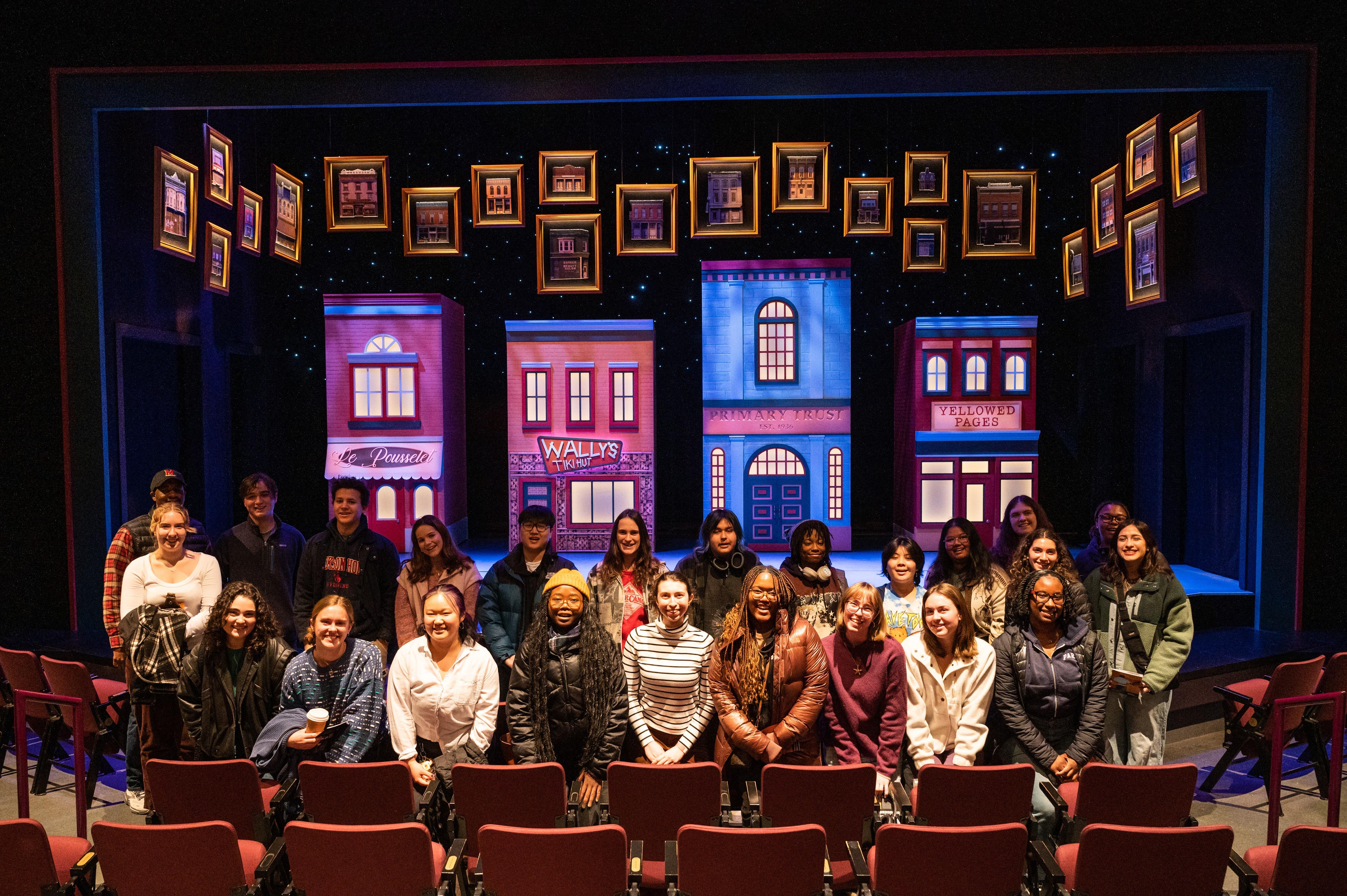
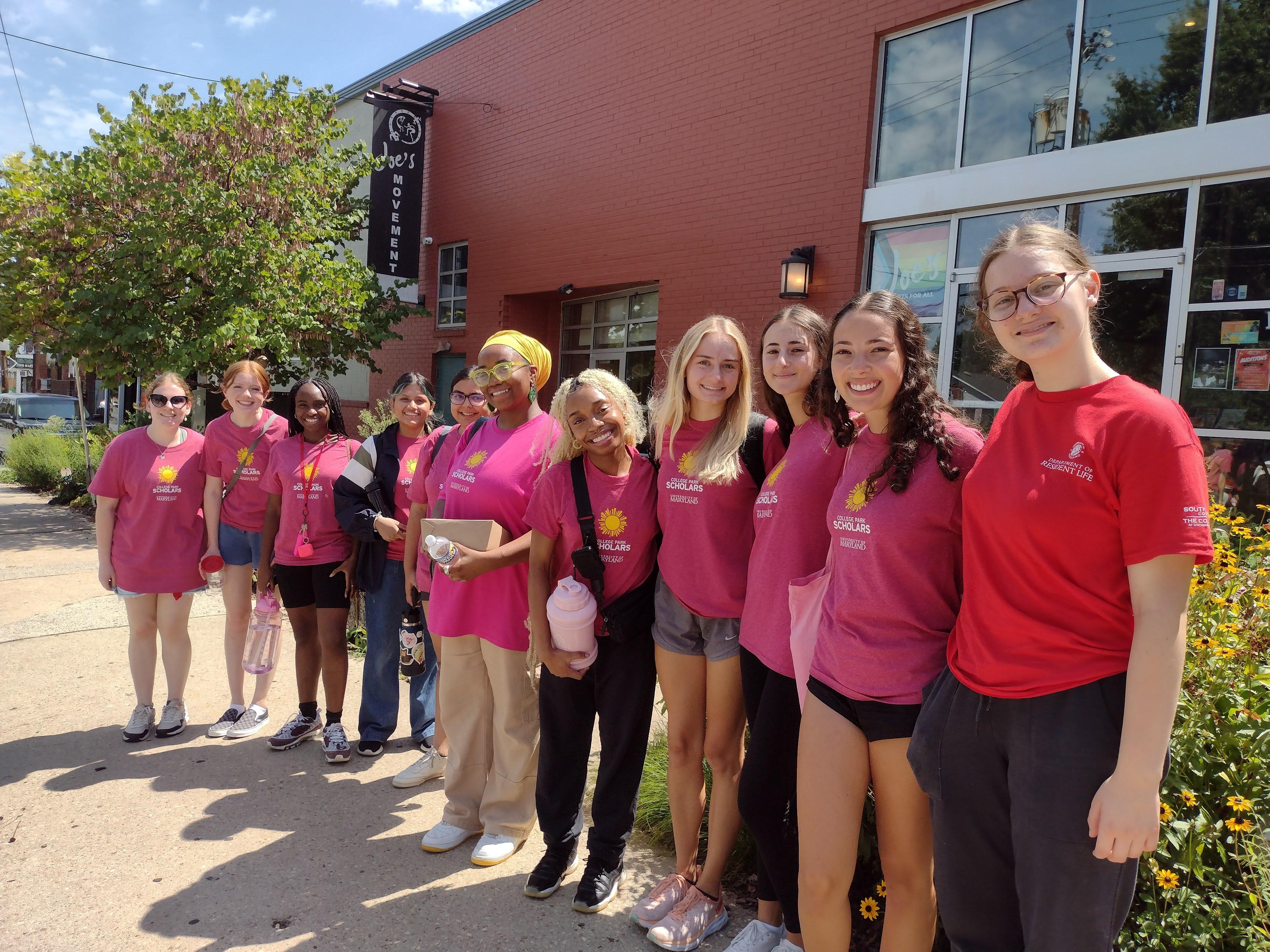
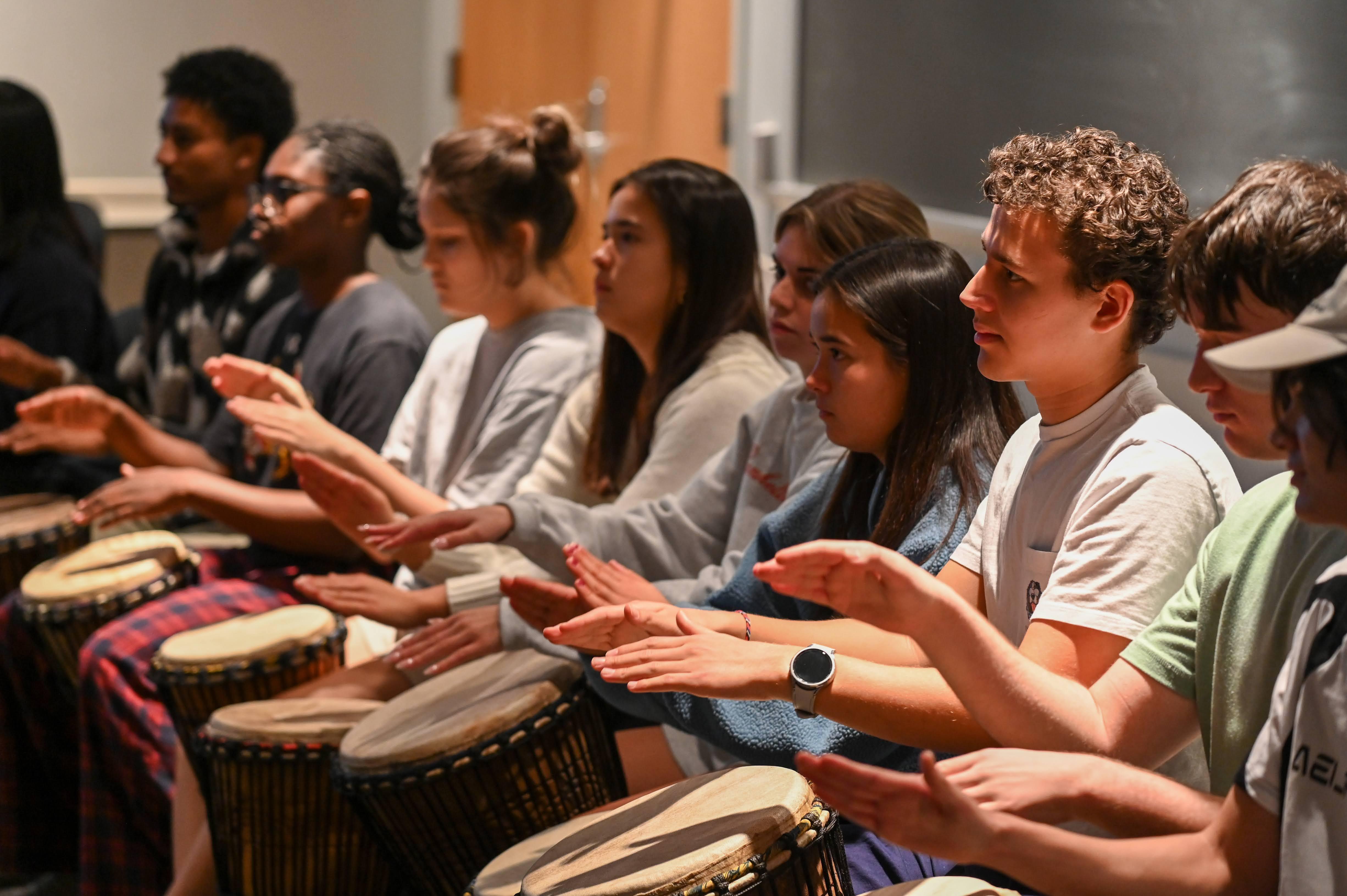
Colloquium and Lecture Topics
Through a mix of lectures, discussions, and guest artist workshops, and experiential projects, students consider (see our most recent “Year in Review” page for photos!):
- Vogue Dancing: How can art be used as a tool for resilience, resistance, and social chance?
- Artistic Consumption: How is artistic “taste” shaped by our social identities?
- Creative Research: How can empirical research, rapid iteration, and prototype testing improve your creative process?
- Spoken Word Improv: How can the principles of improv inform and improve our everyday lives?
- Campus Galleries: How can slow-looking help us combat the pressures of a frenzied world?
- West African Drumming: How can music build community, tell stories, and promote intercultural understanding?
I have been challenged to think differently, work cooperatively, embrace creativity and, most importantly, go beyond the limits I have set for myself. Because of this program, I can confidently say I feel infinitely more prepared for the “real world,” and for that confidence and growth, I could never be more grateful.
Other Learning Opportunities
Outside the classroom, Arts Scholars have many other opportunities….
Experience the arts first hand:
- Field trips: Each semester students visit locations such as The Clarice Performing Arts Center, the Everyman Theatre in Baltimore, the National Gallery of Art, and the National Museum of African American History and Culture.
- Maker Mixer: Teaching Assistant led community building events that include crafting, visiting campus galleries and maker-spaces, and attending shows on campus.
Creative Capstones:
- Sophomores develop capstone projects - identifying a social issue of significance to them to be explored through an artistic medium of their choosing. The capstone project is about your unique view of the world and what you want your audience to understand or experience as a result.
- All capstones are displayed at ArtsFest- an annual exhibition of student work in the Stamp Student Union.
Leadership opportunities:
- Arts Media Team: Social Media & Newsletter assistants work with Arts Faculty to research, draft, and publish the weekly newsletters and Instagram posts to the community.
- Arts Teaching Assistants: Arts Scholars graduates build their skills and experience leading discussions, developing events, and serving as mentors to current students.
Curriculum Overview
Over the two-year program experience (four semesters), students will complete up to 6 credits of supporting courses that will count toward your Arts Scholars citation. In most cases, these will also fulfill General Education requirements. Note that your Scholars courses—colloquiums, capstone practicum and supporting courses—will generally be in addition to any courses you take to satisfy major requirements.
The following represents a typical two-year curriculum, but individual schedules may vary. Details about courses and requirements can be found on the Arts Citation Checklist.
| SEMESTER | COURSE | CREDITS |
|---|---|---|
| Semester 1 | CPSA 100: Colloquium I | 1 credit |
| Semester 2 | CPSA 101: Colloquium II | 1 credit |
| Semester 3 | CPSA 200: Colloquium III | 1 credit |
| Semester 4 | CPSA 201: Colloquium IV | 1 credits |
| CPSA 240: Service Learning; or CPSA 250: Research (DSSP); or CPSA 260: Peer Teaching (DSSP) |
2 credits 2 credits 2 credits |
|
| Semester 1, 2, 3, or 4 | Supporting Course (var. Gen Ed) Supporting Course (var. Gen Ed) Supporting Course (DVUP or DVCC) |
3 credits 3 credits 1-3 credits |
Sponsoring College
Faculty
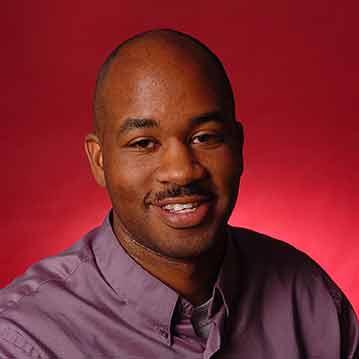
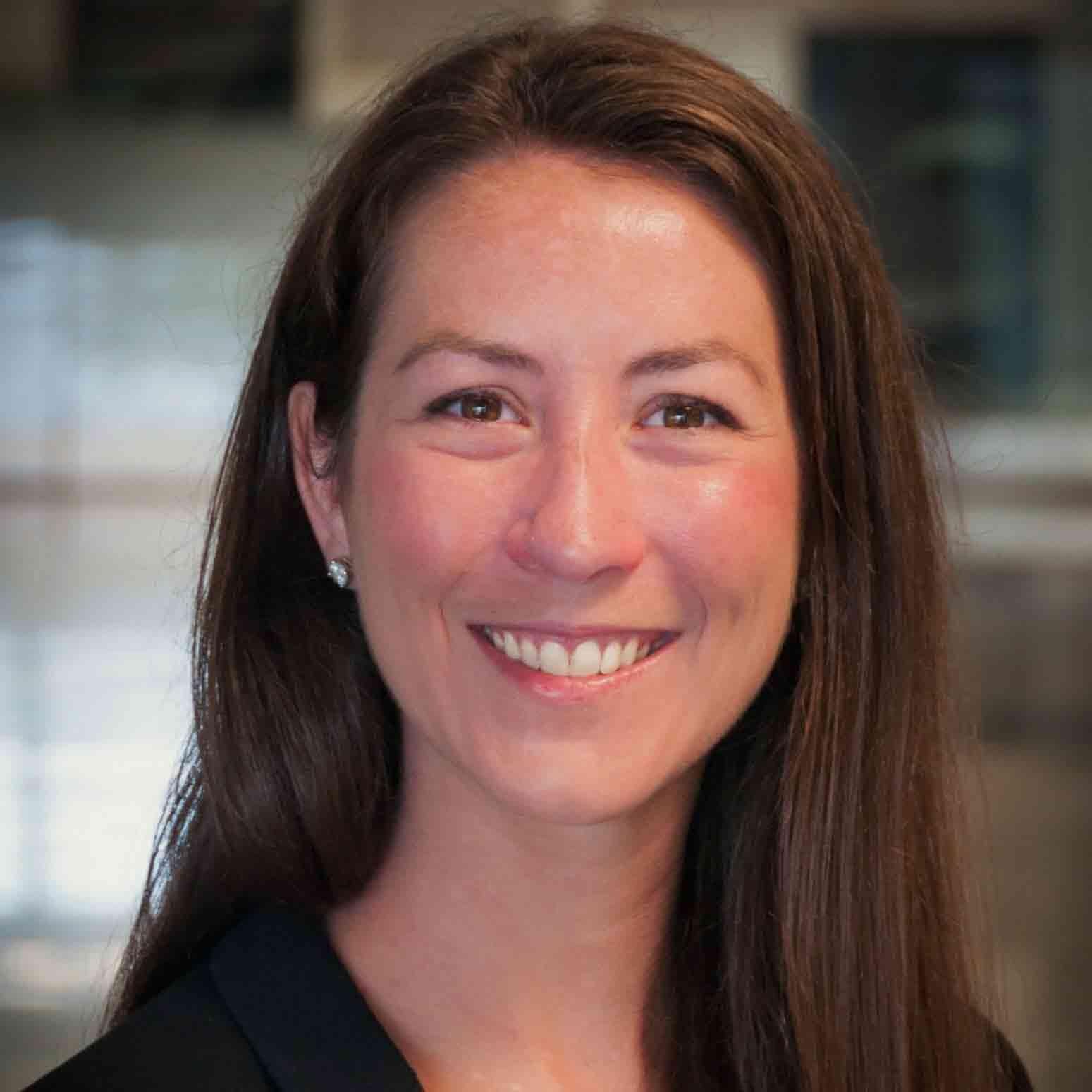
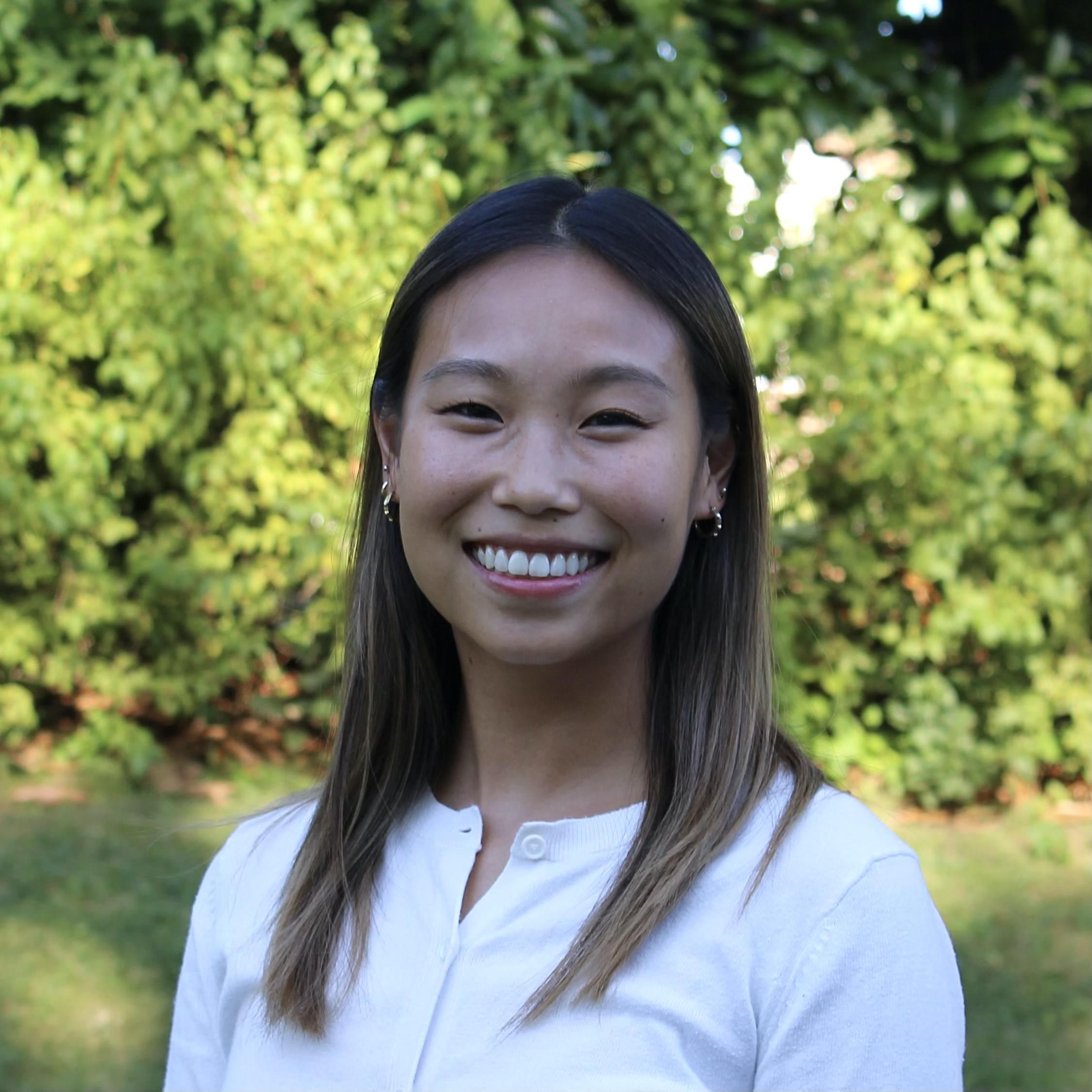
The Diamondback: UMD students' dance workshop highlights Japanese Butoh style, May 2022
Arts News
Uplifting Harriet Tubman’s Legacy with Do Good Campus Fund
For a dozen College Park Scholars in the Media, Self and Society program, a three-day trip this fall will give them not only a chance to immerse themselves in the world of famed abolitionist Harriet Tubman, but also help bring that story to a wider audience. This trip project was one of 27 funded by the Do Good Campus Fund in its inaugural year—an example of the ways that UMD faculty, staff and students work to serve humanity and reimagine learning.
PL Alum's Company Recognized as one of the Best Women-Owned Businesses in Maryland
Ali von Paris ('12), CEO and Founder of Route One Apparel, an online retailer specializing in Maryland pride apparel and accessories. was recently selected for a new recognition program by The Daily Record— In the Lead: Best Women-Owned Businesses in Maryland. The program recognizes accomplished companies owned by women that demonstrate excellence across a broad spectrum of criteria. Under the Public Leadership alum's guidance, Route One Apparel has secured licensing rights with major corporations like McCormick, Utz, Hershey, and Morton Salt.
Faculty and Staff Awards and Honors
A. James Clark School of Engineering Senior Lecturers David Tomblin, director of College Park Scholars’ Science, Technology and Society program, and Nicole Mogul, assistant director of the program, were included in the latest edition of the Maryland Today's roundup of awards and honors for UMD faculty and staff members.
UMD Increases Mental Health, Wellness Services
Expanded on-campus services for substance use treatment, a wellness ambassadors group for graduate students and peer-led workshops in living-learning communities are among the new initiatives at the University of Maryland this fall to support mental health.RADical Health, a new peer-led program offered through Carillon Communities and College Park Scholars and introduced to UMD by Kelley, empowers Terps to become leaders in preventative mental health care by giving them the tools to facilitate workshops that get first-year students talking about what’s giving them stress, and how to manage it.
Bad Bosses, Big Dreams and Broken Philanthropy
For some young people working in nonprofits, their organizations and leaders seem out of touch. Top officials, they believe, are too consumed by their legacy and the hunt for grants. They feel radical change is needed now — in how philanthropy dispenses money, how organizations fight crises, and how staff is managed — but they don’t yet have the power or resources to make it happen. They have big ideas, but they’re still being treated like kids.Life Sciences alum Anthony Sartoni details his work in the mental health space and the partnership between nonprofits and philanthropy in this roundtable discussion.
PL's Washburn Honored with Award for Excellence in Undergraduate Teaching
Clinical Professor and Levenson Family Professor Susannah Washburn, who is also the program director of the Public Leadership Scholars program, was recently honored with the Award for Excellence in Undergraduate Teaching by the Office of Undergraduate Studies Programs.

